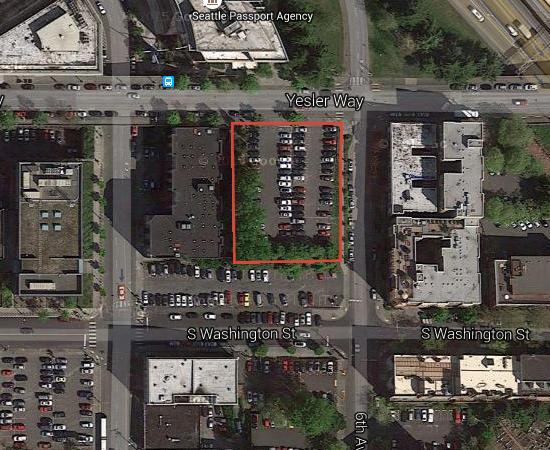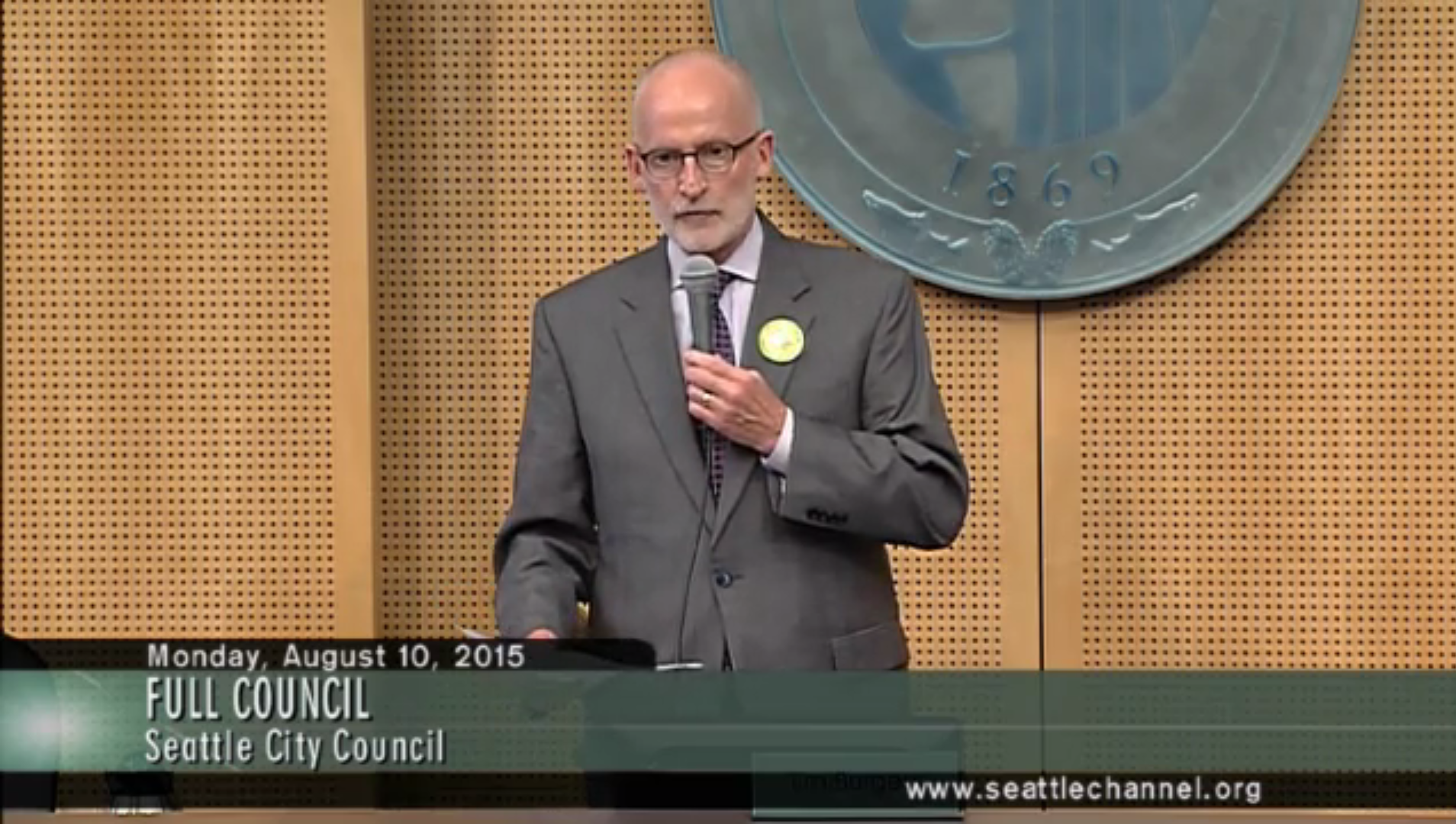At a general legislative session yesterday, the Seattle City Council met to discuss a packed agenda. Topics ranged from the waterfront public space initiative to all-gender bathrooms, and over an hour of public comment centered on the Mayor’s plan to close more than a dozen hookah lounges. The agenda items on firearms and surplus affordable housing were perhaps the most interesting topics discussed and passed by Council.
A set of sweeping gun safety measures were enacted to tax firearms and ammunition sold in the city as well as require the reporting of lost or stolen guns. The companion Council Bills were originally proposed by Council President Tim Burgess in July and quickly proceeded through the committee process. Burgess’s firearm and ammunition tax bill (Council Bill 118437) added a brand new chapter to the Seattle Municipal Code, but the most important section is as follows:
5.50.030 Tax imposed; rates
A. There is imposed a tax on every person engaging within the City in the business of making retail sales of firearms or ammunition. The amount of the tax due shall be equal to the quantity of firearms sold at retail and the quantity of ammunition sold at retail multiplied by the applicable tax rates that are stated in Section 5.50.030.B.
B. The tax rate shall be $25 per firearm sold at retail, $.02 per round of ammunition that contains a single projectile that measures .22 caliber or less sold at retail, and $.05 per round of ammunition for all other ammunition sold at retail.
The other primary gun measure sponsored by Burgess (Council Bill 118436) creates a new requirement for gun owners to report all firearms that may be lost or stolen. Missing firearm(s) must be reported to the Seattle Police Department (SPD) within 24 hours after a theft or first discovery of loss. Details of gun make, model, caliber, manufacturer, and serial number are required to be provided to law enforcement in addition to other distinguishing details and the circumstances of loss or theft. SPD will transmit the details of the missing gun(s) to the National Crime Information Center Database to help with future recovery of the firearm(s).
The ordinance does create a civil infraction for anyone who fails to reasonably comply with the law in the form of fine or forfeiture. But the enforcement aspect of the measure is less important than the benefit that this provides to gun owners and law enforcement. Reporting lost or stolen guns will protect owners from any illicit activity that may come from guns being in the hands of another. And, if found, the guns will likely be returned to the owner.
Before the vote, Burgess spoke about why he was moved to act on gun safety in Seattle:
….Last year when 259 individuals who were admitted to Harborview Medical Center right here in Seattle, victims of gun violence. 149 of the 259 were victims of gun violence assault. 32 or 12% of the total were victims of self-inflicted gun violence. 60 – 23% of the total – 60 individuals suffered from what some people call “accidental” – I think that the public health experts refer to it as “unintentional gunshot wounds”. So this not, these are not two ordinances that are designed to attack business, they are not designed to deal only with criminal assault with firearms. They are designed to deal with the problem of gun violence, no matter who it touches. Whether it’s a criminal assault, whether it’s unintentional, whether unfortunately it’s the taking of one’s own life.
Both bills passed the Council on an 8-0 vote with Councilmember Tom Rasmussen absent.
Meanwhile, the Council briefly deliberated the sale of surplus City-owned property in the International District (Council Bill 118840). Located at Yesler Way and 6th Ave, the property today consists of a parking lot that the City hopes to see redeveloped as multifamily with affordable housing. At issue was a housing covenant to be recorded against the property, which would condition future permitting. Stream Real Estate, LLC, named in the covenant, plans to acquire the 7,200 square foot parcel of land for $1.44 million from the City. Specifically, the ordinance conditions the purchase and sale of the property to ensure that new housing primarily benefits those with low incomes:
Section 2. All residential units provided through construction on the Property and adjoining King County Parcel 524780-1525 shall be offered as rental housing with occupancy limited to households with incomes no greater than 80 percent of median income. Rent levels shall be restricted to no greater than 30 percent of 80 percent of median income. For purposes of this section, median income shall mean the annual median family income for the statistical area or division thereof including Seattle for which median family income is published from time to time by the U.S. Department of Housing and Urban Development, with adjustments according to household size in a manner determined by the Director.
All proceeds from the purchase and sale of the property will go to the Office of Housing with 90% of the funds directed to the Low-Income Housing Fund. This should net nearly $1.3 million for further low-income and affordable housing programs. The bill also passed on unanimous consent from the Council to sell the property and execute the covenant.

In an e-mail, Councilmember John Okamoto, sponsor of the legislation, explained why this covenant and deal is positive for the city:
The sale of the 6th and Yesler is a great deal for the City. As part of the agreement, the buyer will build on-site affordable units with potential childcare facilities. And the City will use the sale proceeds to develop additional affordable units – with a priority on units that can house people in the lowest income bracket. The sale moves us one step closer to our goal to produce 20,000 affordable units in the next ten years.
Stephen is a professional urban planner in Puget Sound with a passion for sustainable, livable, and diverse cities. He is especially interested in how policies, regulations, and programs can promote positive outcomes for communities. With stints in great cities like Bellingham and Cork, Stephen currently lives in Seattle. He primarily covers land use and transportation issues and has been with The Urbanist since 2014.


